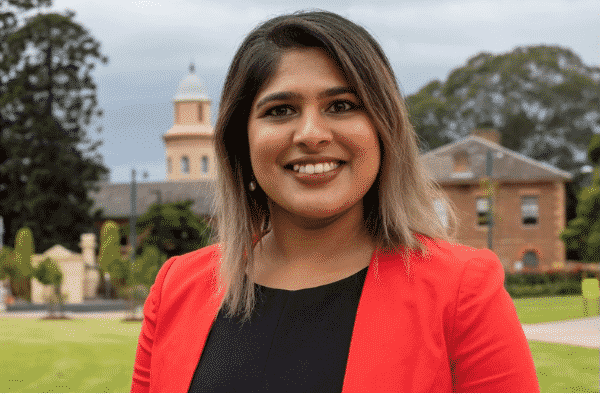As a Liverpool Councillor, and as a Southwestern Sydney resident, you’ve been very vocal about how your community has suffered during lockdown. And yet Western Sydney is now leading in vaccination rates. What do you have to say to the rest of Sydney about that?
It’s quite heartening to note that the message is getting out to people and that people are responding in such a positive way. I’ve been quite vocal about my criticisms of the government, and advocating for having equal treatment across the Greater Sydney region.
For a long time now, I think Western and Southwestern Sydney have borne the brunt of this impression that our communities are the ones responsible for extending the lockdown and for keeping us in this situation for such an extended period of time.
One of the comments I often get from people from other parts of Sydney is, you know, if people from Western and Southwestern Sydney just stayed home, this wouldn’t be happening. I think it’s not a matter of people not believing in COVID, or not wanting to get vaccinated and not wanting to do the right thing by their community. There have been some unique factors that have resulted in our communities bearing the brunt of the infection rates and the health and economic consequences of this pandemic. The rate of vaccinations show that by and large, Western and Southwestern Sydney want to see the end of this pandemic, as much as anyone else in Sydney.
You’ve been in Council now for five years. What would you say has been the highlight?
Probably some of the initiatives that have come to fruition. For example, one of my first initiatives was to drive the development and implementation of green open spaces and recreational facility for all the local government area. It was just about five years ago the Federal government had announced Badgerys Creek as the site of the second airport. It obviously increased interest in Liverpool overall. But I saw that, on a lot of different fronts, there was the potential to experience difficulty down the road if we didn’t plan appropriately for the future. And one of one of those was in how much green open and recreational spaces we have. We needed then to have investment and planning to properly account for the recreational sporting facilities and the open spaces that we have.
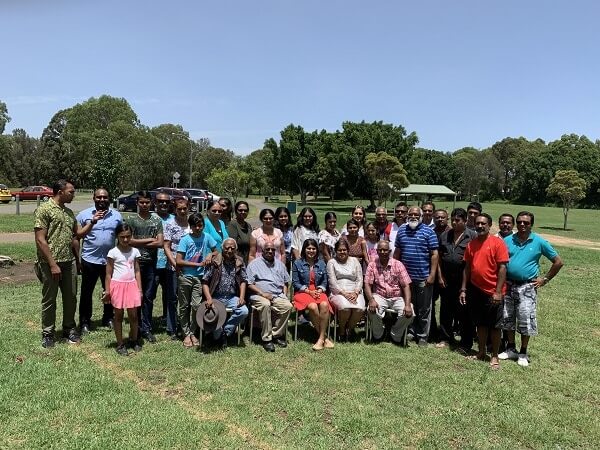
READ ALSO: Jodi McKay tipped to be NSW Trade Envoy to India?
What’s it been like for you in politics, as a woman of colour?
I’m actually quite lucky to have a very broad and diverse network of supporters and mentors that have helped guide me.
When I first got involved, I had some great role models who provided reference in terms of what our representatives should be doing for their community.
However, I’m very conscious of the fact that in some ways, my experiences have been quite unique. I know in speaking to other women of colour, who are involved in politics, that that experience is not a universal one. And it should definitely be something that we should work towards – helping women who aspire to do that, and formalise the involvement of women who are doing that but in a very informal sense.
Often when you talk about the role that diversity has to play in politics, or representing the community, the response that you get is, ‘oh well, you know, these people aren’t putting their hands up’, or they’re not stepping up. That’s a very simplistic response, because often, these people are very much involved, whether it’s their local communities or organisations. However, there are structural barriers to taking that next step into one of the three levels of government or bodies like boards and committees, barriers we need to dismantle. And one of the frequent barriers seems to be lack of institutional knowledge, how to engage with your local council or your local MP. People assume this knowledge is automatic, but it’s not, especially for women who may be from migrant or refugee backgrounds. So setting up structures to share that knowledge, mentor people, and encourage them to take that next step is where I see a bit of a gap, but it’s heartening is that in the last few years, there are a few organisations and people that have stepped up in that space.
How would you like to be involved in that kind of mentoring yourself?
In the last sort of 12 to 18 months, I have joined with a couple of organisations that are doing this. Recently, I was a speaker in a webinar looking at encouraging women of colour to run for local council, and that was that was through an organisation called Politics in Colour. Since then, I’ve had a number of people reach out to me about how to get more involved in their local areas, or how they can step up to have more of a say in the things that impact their daily lives, communities, and the people they care about.
READ ALSO: Indian-origin barrister to become Supreme Court judge
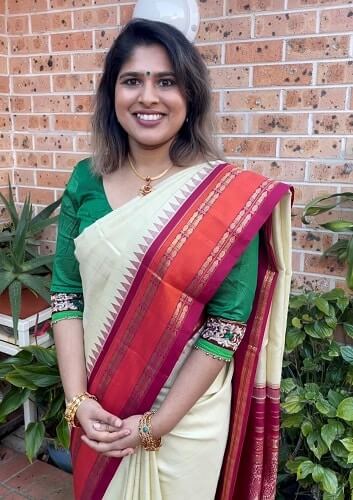
There’s been much discussion this year about women in politics being second class citizens, and this runs the entire gamut from junior staffers to high profile leaders. Why would a woman want to enter politics now?
That’s a very good question. And one I asked myself earlier this year, when many of the women who have had these experiences were sharing their stories. I think it’s really important to acknowledge that no one should have to go to their workplace and be subject to that amount of harassment or those sorts of experiences.
However, the challenge in that is, if women step away from politics, then nothing changes.
If women see this as a sign to disengage from politics altogether, and just not be involved, then we have a vicious circle, which leads us to an even worse situation where there are less women involved in politics, which means that there’s less chance of the culture changing, which means there’s less chance of dismantling and changing the broader structural issues that are in play here.
The only way that we can change it is by almost doing something that is counterintuitive, by getting more involved.
There’s a crisis of confidence in leadership – not just in Australia but in other countries as well. Why should we trust politicians?
Trust is a very valuable thing. It needs to be earned. Politics is not about issues being cut and dry. It’s very often about having not the perfect solution, or the perfect course of action, but the best possible course of action, keeping in mind the information, the resources and the situation that you have at hand.
You’ve risen from student politics, you’ve done really well in local government. Is it time for you to go further? You’ve taken a crack at state politics before. Is that something you would like to consider again?
That’s a difficult question. On the one hand, you have perhaps ambition, or what you may see as the next step in your career. But that’s always going to be influenced by opportunity. And when it comes to the Labor Party, the core of that opportunity aspect (lies with) your branch members and your local community, whether they see you as someone they would like to support to be their candidate. So the other component of the challenge with that question is, I guess, your capacity to affect change at those levels.
Currently, the beauty of local government, is the immediacy with which you see the impact of decisions or actions. And it’s not just about policy or strategies, sometimes it’s about being able to connect people within the organisation to achieve an outcome. For example, for the last six months, I’ve been working with a young person in our local community who is really passionate about an issue called sensory processing disorder, an auditory processing disorder. She’s making sure that teachers, health professionals, parents and other people with impact on young children, are aware of what this condition looks like, so that we can test early and then intervene. As a result of her saying, ‘this is what I would like to see happen more broadly within our local community’, we were able to raise awareness. This is something that’s not necessarily normal council activity, but being able to have that kind of local impact is something that keeps me going. To see that local impact and the almost immediate reinforcement of what you’re doing and what issues that you’re pushing, is less apparent on the federal level.
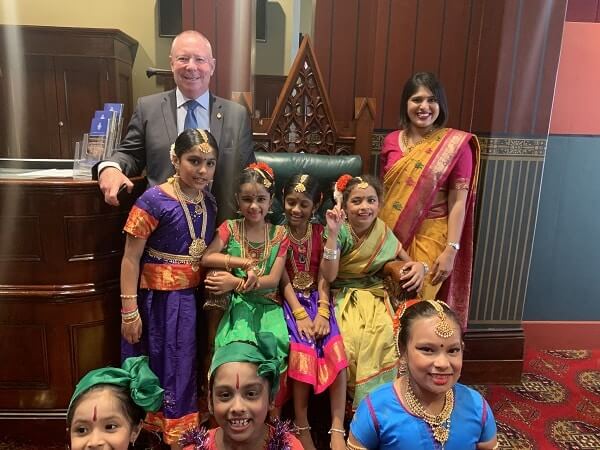
What would you be doing if you were not in politics? Or is that even a valid question, because like all Councillors you continue to do your mainstream job in occupational therapy.
My day job is with Headspace. At the moment, my focus is very much on schools and youth mental health and well-being.
What brought you to politics?
In high school, I was very involved in cultural organisations within the Indian community. It was thinking about the impact I was making that really made me shift, and consider being involved in politics and representation. I didn’t actually join a political party until I’d been involved in my student organisation at UNSW for at least 12 months.
And then while I served on the student representative council, there would be long discussions about people, community, political activism, and philosophy. I came to believe strongly in the value of role models and mentors and being able to see yourself in the leaders in the community.
READ ALSO: #MyWork: Mental Health Social Worker
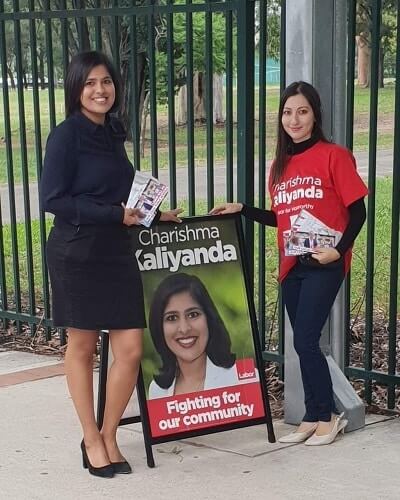
In this regard, what are your thoughts about Labor’s Kristina Keneally wanting to nominate for the seat of Fowler over popular local Tu Le?
This has been the topic of many discussions I’ve had recently. Leaving aside the individuals, I have a lot of time for Kristina Keneally, I’m very disappointed that, once again, an opportunity to ensure that our parliament reflects our broader community has been missed. When our communities don’t see their lives, aspirations and experiences reflected back in their visible leaders, it causes a disconnect and disillusionment with politics in general. We need to rebuild trust and communication so that our community is stronger overall.
What are you reading currently?
Good Indian Daughter by Melbourne writer Ruhi Lee. It’s about her life as anything but this stereotypical good Indian daughter!
What’s a podcast you’ve enjoyed recently?
I have an eclectic taste in podcasts. I quite enjoy true crime podcast. I’m listening to an ABC podcast called Juanita – a journalist who disappeared in Kings Cross in 1975. There’s also Brene Brown’s Unlocking Us. She’s a social worker who has written and done a lot of work on leadership and leadership theory. Another one I’ve loved is What The British Stole.
Wonderful. What’s the first thing you’ll do when lockdown ends?
Given the weather is warming up, I would love to go to the beach.
Last question. What keeps you up at night?
If I was being very flippant, I would say Korean dramas (laughs). But in terms of what really concerns me at the moment, it’s some of the impacts of COVID and how we come out from that. In the last few weeks, I’ve had a number of discussions with local residents and business people not only about the impact of the very strict restrictions at play but also about how we can recover.
Link up with us!
Indian Link News website: Save our website as a bookmark
Indian Link E-Newsletter: Subscribe to our weekly e-newsletter
Indian Link Newspaper: Click here to read our e-paper
Indian Link app: Download our app from Apple’s App Store or Google Play and subscribe to the alerts
Facebook: facebook.com/IndianLinkAustralia/
Twitter: @indian_link
Instagram: @indianlink
LinkedIn: linkedin.com/IndianLinkMediaGroup



